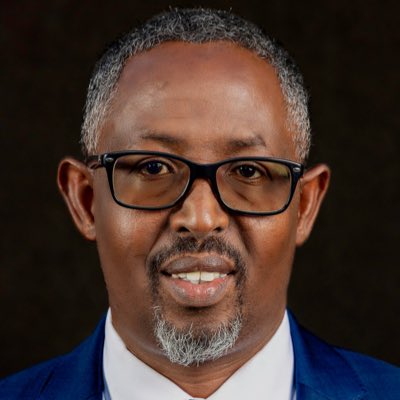Ethiopia’s approach to Somalia in recent years bears a striking resemblance to strategies employed by colonial powers and settler movements throughout history. Particularly, one can draw parallels to the tactics attributed to Jewish settlers in Palestine during the early 20th century and the subsequent establishment of Israel. This comparison, while not exact, offers an intriguing lens through which to view Ethiopia’s engagement with its eastern neighbor.
The concept of “divide and conquer” is as old as statecraft itself, but its application in the context of modern nation-states has taken on nuanced forms. In Palestine, during the British Mandate period (1920-1948) and afterward, Jewish settlers and Zionist organizations were often accused of exploiting existing divisions within Palestinian people to advance their goals. This strategy involved leveraging economic disparities, political rivalries, and social cleavages to weaken unified opposition to Jewish immigration and state-building efforts.
Ethiopia’s engagement with Somalia in the 21st century echoes some of these tactics, albeit in a different historical and cultural context. Just as the Zionist movement sought to establish a foothold in a complex, multi-ethnic landscape, Ethiopia finds itself navigating the intricate clan politics and regional divisions of Somalia. The parallels are not in the objectives – Ethiopia isn’t seeking to establish a new state – but in the methods of maintaining influence and ensuring recovering Somalia remains unstable.
One key aspect of the strategy attributed to early Zionist settlers was the exploitation of economic disparities. In Palestine, this often involved land purchases that displaced Palestinian peasants, creating tensions between them and the Arab landowners who sold the property. In Somalia, Ethiopia has engaged in political strategies that, while not identical, serve a similar function of creating or exacerbating divisions. By fostering political ties with semi-autonomous regions like Somaliland, South West and Puntland, Ethiopia effectively bypasses the central government in Mogadishu, creating competing centers of political interest within Somalia.
Political fragmentation was another tool in the arsenal of early Zionist strategy, and here the parallel with Ethiopia’s approach is particularly striking. In Palestine, Zionist leaders were accused of exacerbating rivalries between prominent Palestinian families and factions, making it difficult for a unified Palestinian leadership to emerge. Ethiopia’s support for federalism in Somalia and its engagement with various regional administrations follows a similar logic. By maintaining relationships with multiple political actors – from the federal government to regional states and clan leaders – Ethiopia ensures that no single entity within Somalia becomes powerful enough to challenge its interests.
The use of security concerns to justify intervention is another point of comparison. Just as early Zionist settlers formed defense organizations like Haganah, ostensibly to protect Jewish communities but also to assert control over territory, Ethiopia has used the threat of extremist groups like Al-Shabaab to justify military interventions in Somalia. While the security concerns are real, these interventions have also served to shape Somalia’s internal dynamics in ways that align with Ethiopian interests.
Moreover, the strategy of creating “facts on the ground” – a term often associated with Israeli settlement policy in the West Bank finds an echo in Ethiopia’s approach to border regions. By cultivating close ties with regional administrations in areas like Somaliland, Puntland and South West State, Ethiopia effectively creates a buffer zone that serves its security interests while complicating efforts to establish strong, centralized control from Mogadishu.
It’s crucial to note, however, that while these parallels exist, the contexts are vastly different. Ethiopia is not a settler-colonial power in Somalia; it’s a neighboring state. The comparison is not meant to equate the two situations morally, but rather to highlight how similar strategies of influence and control can manifest in different historical contexts.
Furthermore, Ethiopia’s approach, like that of the early Zionist movement, is not monolithic or unchanging. Just as Zionist strategies evolved over time in response to changing circumstances, Ethiopia’s engagement with Somalia has shifted with regional dynamics, internal politics, and international pressures.
The story of Ethiopia and Somalia, like that of Israel and Palestine, is one of complex historical legacies, competing nationalisms, and the challenges of building stability in a volatile region. Ethiopia’s strategy, while reminiscent of historical “divide and conquer” tactics, is also a product of its unique geopolitical position and the realities of the Horn of Africa.
As we consider these parallels, it’s important to recognize that they offer insights into the enduring challenges of state-building, regional influence, and conflict resolution. Ethiopia’s engagement with Somalia, like the earlier Zionist movement in Palestine, raises fundamental questions about sovereignty, security, and the balance of power in regions marked by historical conflicts and competing interests.
Looking forward, the key question is whether these strategies will lead to long-term stability or perpetuate cycles of fragmentation and conflict. Just as the tactics employed in Palestine have led to ongoing tensions and unresolved issues. Ethiopia’s approach to Somalia has become increasingly problematic, particularly in light of recent actions that directly challenge Somali sovereignty. The signing of a MoU with a Northern region of Somalia, represents a clear violation of international norms and Somalia’s territorial integrity.
This move has justifiably raised alarms both within Somalia and across the international community. It’s crucial to emphasize that Ethiopia’s aspirations, whether for access to territorial waters or any form of annexation, are fundamentally misguided and untenable. Somalia’s territorial waters and land are inviolable, and the international community must stand firm in affirming that Ethiopia will not gain “an inch” of Somali territory through such tactics.
In Conclusion: While Ethiopia may not be consciously emulating historical colonial or settler strategies, its approach to Somalia bears striking similarities to tactics employed in other complex geopolitical situations. This comparison offers a valuable perspective on the enduring challenges of regional politics and the ways in which nations seek to secure their interests in volatile neighborhoods. As Ethiopia continues to navigate its relationship with Somalia, understanding these historical parallels may offer insights into both the pitfalls to avoid and the opportunities for more constructive engagement in the future.
By : Ismail D. Osman





